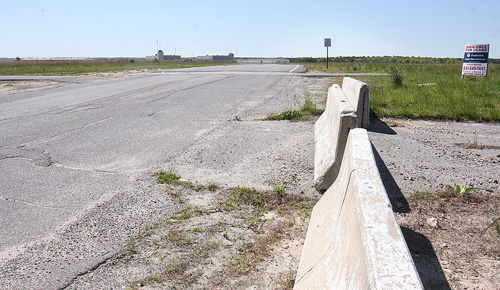Editorial: Little choice on EPCAL study cost overrun
Preparing for the unknown in any circumstance is challenging indeed. Go too far and you overprepare, creating unnecessary work. Don’t go far enough and you’ll always be left wondering, “What if we’d done more?”
And readying Enterprise Park at Calverton to market to the public is about as hard a task as any facing Riverhead right now.
So what’s to be done when the firm conducting the EPCAL planning study asks for an additional $162,390 to complete its work — a 35 percent cost overrun on the $464,000 originally allocated?
The Town Board OK’d the additional funding (see related story). It’s nearly impossible at this point to tell what will be right and what will be wrong in the long run but at this point we agree with the decision, reluctantly.
The time required to negotiate a proposal acceptable to the Department of Environmental Conservation surprised everyone. And the town did ask planning firm Vanesse, Hangen, Brustlin to do additional work, for which it now has to pay if it wants the final product.
But VHB should not be asking for additional money to cover expenses that are strictly limited by stipulations in the original contract — for example, the number of people they can bill the town for sending to public meetings. They’ve been around the block and surely knew when they signed the contract how many people it takes to properly represent their clients at meetings.
The town and VHB both knew long ago that more money would be needed to complete the work and the town should have parceled out the payments in smaller installments. So VHB’s request for such a large lump sum all at once seems unfair, leaving some — at the very least, Councilwoman Jodi Giglio, who voted against the allocation — with understandable sticker shock. And, coming two weeks after Election Day, the timing of the request could also be considered curious by some.
But the fact remains that this study is vital to the plans the town has started at EPCAL, making the land marketable in ways previously impossible — especially in light of recent legislation passed in Albany.
It would be a shame to be left wondering years from now, “What if we had just paid that extra $162,000” in 2013 to finish that study?
We just hope we won’t have to revisit this question in 2014.









